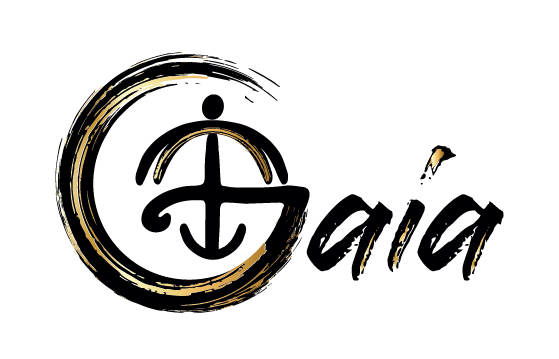
What is Amatsu Therapy?

Amatsu therapy is a modern adaptation of a soft tissue therapy that has been used for thousands of years in Japan
Amatsu therapists use ancient wisdom with modern techniques to treat the body as a whole.
Amatsu is based on ancient principles of natural movement and seeks to address muscle, skeletal and lifestyle-related conditions, as well as supporting the restoration of general health and well being. Amatsu therapy is based on the theory of biotensegrity and it applies these principles to treatment.
The Amatsu Therapist will use unique soft tissue pressure and mobilisation techniques to treat the whole body, not just the symptoms of pain or discomfort. They also seek to address the effects of life’s daily stresses on the body – including physical, emotional and environmental factors.
Different from other therapies, Amatsu is a comprehensive treatment that works with the body’s soft tissue (e.g. muscles, tendons, fascia, ligaments, and organs) to help to re-balance other key mechanical and energetic structures (e.g. the spine, bones, joints, cranium, meridian circuits, etc).
What conditions can be treated with Amatsu Therapy?
Amatsu therapy can be used to treat many muscle, skeletal and lifestyle related conditions and to aid the restoration of well-being and good health. It also addresses the effects of stress on the body – namely physical, emotional and environmental factors.
Amatsu is very gentle yet dynamic, suitable for people of all age groups including those with limited mobility and pregnant women.
Here are the most common reasons for consulting an Amatsu therapist.
If your condition is not listed, please contact your local therapist who will be happy to discuss it with you.
Pain
Arthritis
Sciatica
Pelvic pain
Groin strain
Scoliosis
Postural
Mobility problems
Headaches
Migraines
Whiplash
Frozen Shoulder
Jaw pain
Neck and shoulder pain
Trapped nerves
Tennis/golfers elbow
Carpal tunnel/RSI
Knee, feet and ankle problems
Joint problems
Sports injuries
Muscular spasms
Sprains and strains
Circulation issues
Chronic fatigue or ME
IBS & digestive problems
Menstrual problems
Pre and post pregnancy issues
Stress
Amatsu therapy can also be used to aid the restoration of general well being and good health. Therefore it also helps to:
Stimulate the removal of toxins
Improve circulation to tired muscles
Encourage body tone and co-ordination
Offer stability for the skeleton
Recharge the immune and nervous system
Restore the body’s balancing sense of proprioception
Support the management of painful conditions
Promote a good sense of health and wellbeing

Amatsu therapy should not be used to replace medical treatment without consultation with your GP. If unsure, please consult your local Amatsu therapy practitioner and your GP for advice.
What does an Amatsu Treatment Feel Like?
An Amatsu treatment , known as a “balance “ uses various soft tissue and mobilisation techniques.
Different levels of pressure are applied according to your specific needs. Therefore clients frequently report an experience of feeling relaxed, while invigorated and energised .
A practitioner will work on any part of the body that is involved with the pathology, even if the relevance of the engagement is not immediately apparent to the client. Practitioners are trained to tailor the balance to the client’s needs, but always with a holistic view.
How Does One Feel After an Amatsu Therapy Session?
Though the treatment takes effect straight away, further changes are noted as they become assimilated and solidified by the body. It is not unusual to feel the effects over a few days as the body allows more and more to unravel. Feelings of lightness and freedom of movement take effect as they are incorporated into daily life - be it in work, during hobbies or chores.
As muscles let go of old injury inhibitions you may experience some aches; drinking sufficient water and keeping mobile will help you process these symptoms.
Consider this as your body sorting out the changes. Reporting these changes back to your practitioner will be of major benefit to your treatment structure.
For the 24-48 hours following your Amatsu therapy balance, our general advice is to:
Drink plenty of water
Keep mobile e.g. have a brisk, short walk swinging your arms
Avoid strenuous exercise
Don’t overdo uncomfortable postures which may have contributed to your body’s problems. For example, sitting hunched over a computer keyboard or holding a telephone to your ear
Go barefoot at home or where possible and avoid high heels
Have a warm bath or shower
Be kind to your body. Although gentle, Amatsu is asking your body to release lots of restrictions that it may have held for a very long time, so you may be quite tired. Importantly, listen to your body – it will tell you what it needs.
If your treatment has been in response to gastric, abdominal or immune system based symptoms you may wish to try to avoid those foods that could commonly cause dehydration or that are commonly known to provoke stress reactions in the body (such as refined sugars, processed foods and caffeine base products.) This is in line with a normal healthy diet. If you have any questions or concerns following your treatment please contact your practitioner who will be able to discuss them with you.
Amatsu therapy should not be used to replace medical treatment without consultation with your GP. If unsure, please consult your local Amatsu therapy practitioner and your GP for advice.







